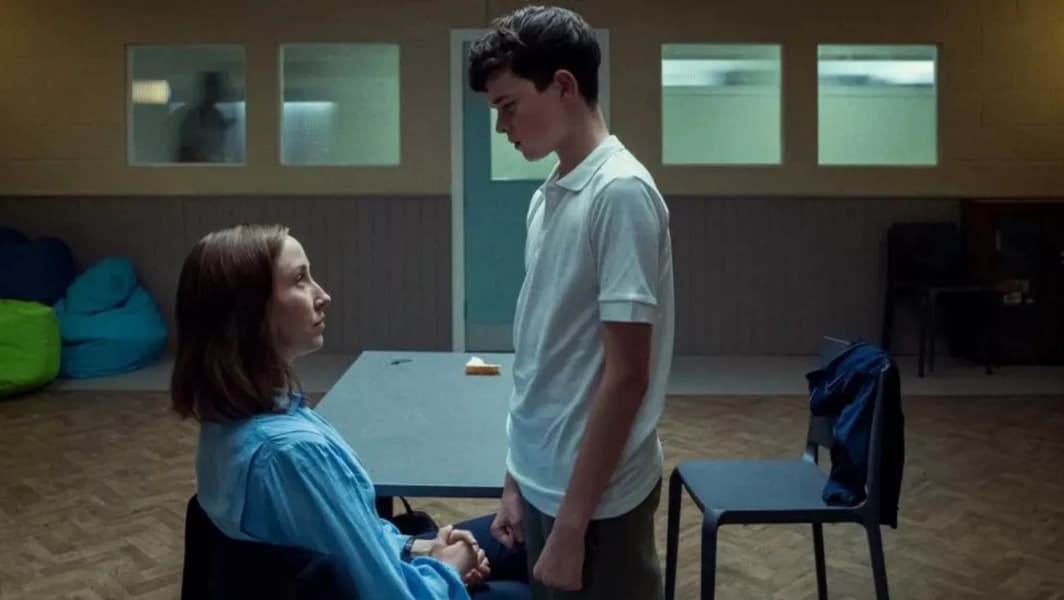
Adolescence Drama Highlights Growing Knife Crime and Influence of Social Media in the UK
A Legal Perspective on the Impact of Misogyny and Social Media on Youth Violence
Netflix's Adolescence, a gripping drama series, sheds light on a disturbing trend in the UK: the rise of knife crime and the influence of misogyny through social media influencers. The four-part series, praised for its raw portrayal of societal issues, focuses on the aftermath of a stabbing incident involving a 13-year-old boy and a teenage girl, which tragically reflects an escalating issue in the UK — the involvement of young people in violent crime.
Rising Knife Crime in the UK: A Growing Concern
Knife crime in the UK has seen a sharp increase in recent years, particularly in urban areas. According to government statistics, there were over 45,000 recorded incidents of knife crime in 2023, a figure that has been climbing steadily over the past decade. These crimes, often perpetrated by young individuals, are a worrying reflection of the deepening societal challenges faced by today’s youth.
From a legal perspective, tackling knife crime requires a multifaceted approach. The UK law on knife possession and use is stringent, with laws such as the Offensive Weapons Homicide Act 2018 and Section 139 of the Criminal Justice Act 1988, which make carrying a weapon without lawful reason a criminal offense. Despite these efforts, the rise in violent acts committed by minors suggests that further interventions, particularly in terms of prevention, education, and mental health support, are necessary.
The Influence of Social Media Influencers on Youth Violence
A core theme in Adolescence is the role that social media influencers and figures like Andrew Tate play in shaping the mindset of young people, especially teenage boys. Misogyny has become increasingly prominent in online spaces, and figures promoting toxic masculinity have found a significant following, particularly among vulnerable youths.
Incel culture—a term for "involuntary celibates"—has gained a disturbing foothold among some young men, particularly those exposed to extreme views on social media platforms. This online subculture often advocates violence against women and promotes deep-seated misogyny. Figures like Andrew Tate have been criticized for fostering these harmful beliefs, using platforms to spread messages of hate, entitlement, and violence.
From a legal standpoint, tackling the influence of such figures is challenging. While many of these individuals operate within the boundaries of free speech, there is an ongoing debate on whether social media platforms should bear responsibility for the content they host. Regulations such as the Online Safety Bill are attempts to hold these platforms accountable, but critics argue that the law still lags behind in addressing the deeper issue of how social media can foster dangerous ideologies.
Combating Misogyny and Violence in the Digital Age
The show’s writers, including Jack Thorne, have emphasized the need to confront the rising tide of male rage and its manifestation through violence. The story presents a stark reflection of the real-world issue of how social media influencers influence young minds, pushing them toward actions that have real-world consequences.
Legal experts and psychologists argue that combating this culture requires more than just punitive measures; education and mental health support for young people, particularly those exposed to harmful content online, are essential in reducing youth violence. Schools, community programs, and digital literacy initiatives must be bolstered to counteract the toxic messages young people are exposed to.
Can Influencers Be Held Accountable?
The growing influence of social media influencers has raised critical questions about their responsibility in promoting positive or harmful messages. In the case of influencers like Andrew Tate, who have been banned from various platforms but still maintain significant online followings, the legal system faces the challenge of balancing free speech with the prevention of harmful content.
Currently, the law allows social media companies to take action against such individuals by removing their content, but the accountability of influencers remains a grey area. Legal advocates suggest the introduction of stricter guidelines for influencers, particularly those targeting minors, could help curb the negative effects they have on young minds.
While the UK law currently targets content that directly incites violence or promotes illegal activities, it often fails to address the broader cultural shift being fostered by these influencers. Advocates argue that misogyny and the normalization of violent behavior should be classified as hate speech or extremist content, subject to more stringent regulation.
Netflix’s Adolescence: A Crucial Conversation
The success of Adolescence lies not just in its dramatic storytelling, but in its ability to bring attention to the urgent societal issues surrounding knife crime, misogyny, and the influence of social media influencers. The show’s portrayal of a 13-year-old boy, Jamie, whose life spirals out of control after being exposed to toxic online content, serves as a chilling reminder of how dangerous these online spaces can be for vulnerable young people.
While the show does not attempt to offer solutions, it sparks a necessary conversation about the need for legal reform in the way social media operates, and how society can better protect young people from harmful influences.
Conclusion: A Call to Action
As Adolescence continues to captivate viewers, it serves as a timely reminder of the growing issues surrounding misogyny, knife crime, and the influence of social media influencers. Legal frameworks, such as the Online Safety Bill, need to evolve to reflect the dangerous impact these influencers have on the youth, and stricter accountability measures should be considered to prevent further harm.
By engaging in discussions and implementing legal reforms, society can work to reduce the harmful impact of these influencers and provide the necessary support to prevent the next generation from falling victim to these ideologies.
For any enquiries or information, contact info@thelawreporters.com or call us on +971 52 644 3004. Follow The Law Reporters on WhatsApp Channels